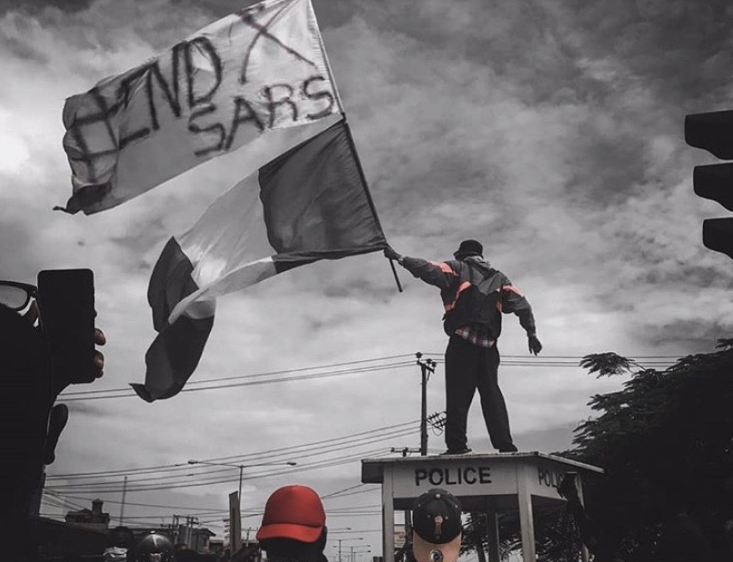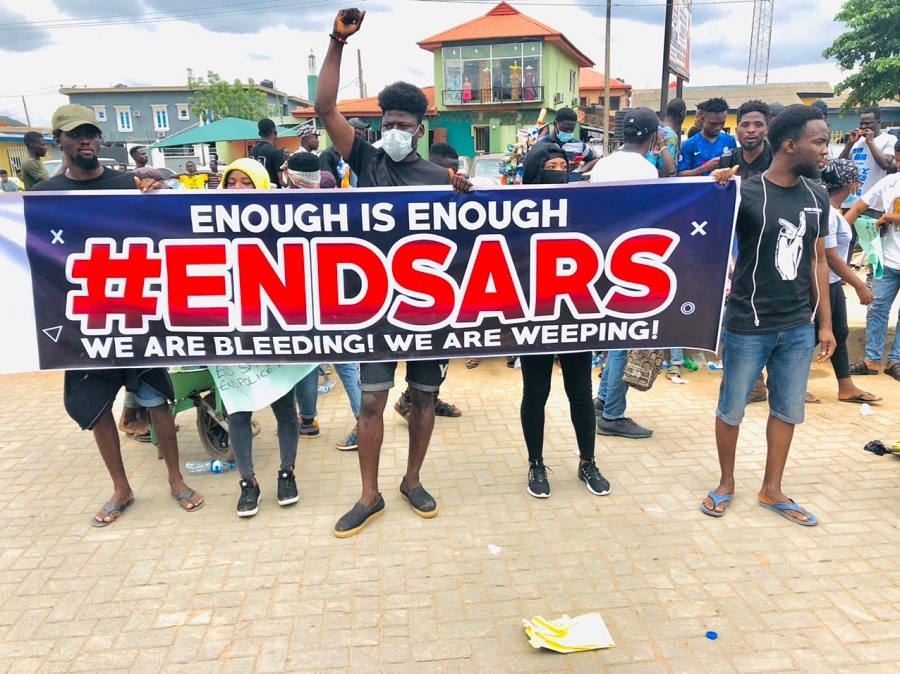In June 2019, the Hong Kong Government revealed plans to implement a controversial law that allows the extradition of Hong Kong citizens to mainland China.
As the government dithered, pockets of protests broke out, which triggered clashes with Policemen that most protesters viewed as excessive. Within days, protesters went from a few thousands to over 2 million, the largest in the history of Hong Kong.
By the time the government decided to pull back the bill; the protesters, many of them young, were already demanding for more than just a withdrawal of the bill. They wanted the police investigated and prosecuted for using excessive force, amnesty for protesters, and a right to vote for all.
The protests lasted for about 6 months only to be dissipated by social distancing requirements, due to the COVID-19 pandemic. Before then, protesters had grounded the economy, which drove the Hong Kong economy into a recession and $3 billion in stimulus.
Nigeria is experiencing its own version of protests similar to that of Hong Kong, except that it does not have any money to inject as stimulus. The latest protests were triggered by anger over the alleged violent killings and extortion by the controversial anti-robbery unit of the police, known as SARS or FSARS.
For years, young Nigerians, mostly via social media, have called for the unit to be disbanded and rogue elements in the force brought to justice. Despite repeated promises by the government, they have failed to heed to their demands, triggering a new wave of protests that has now spread across the country.
From demanding an end to SARS, prosecution of rogue police officers, and reforms; Protesters are more emboldened, threatening to continue if all their demands are not met. The government is scrambling to contain a situation that is escalating and could dangerously metamorphose into violent clashes with authorities, leading to loss of lives and destruction of properties.
There is also fear that this week’s protest could be sustained for more days, if not weeks. You only need to look at the economy of the Nigerian Youth to understand why this is such a critical moment.
According to data from the National Bureau of Statistics, Youth unemployment is at an all-time high of 34.9%, making up 64.3% of total unemployed Nigerians. University students have also been at home for months, due to the 7 months ASUU strike.
Their parents are also facing tougher economic conditions with inflation rate galloping past 13%, after multiple devaluations and the removal of fuel subsidy. It was just a matter of time for them to find a rallying point to vent their frustration.
There is still a window for the government to de–escalate tensions, and it is not just by accepting the terms of protesters on paper and making bogus pronouncements. Nigerian youths want concrete actions and it starts by making immediate changes in the leadership of the Police – the rogue unit in particular. Officers suspected of murdering innocent Nigerians need to be made to face justice.
The government also needs to urgently resolve its dispute with the Academic Staff Union of Universities (ASUU) on the Integrated Payroll and Personnel Information System (IPPIS). Students and young Nigerians also need to be offered grants and palliatives to help them cushion the effects of an economic crunch that is in no way their making.
Proceeds from the Nigerian Youth Investment Funds should be disbursed immediately to those who have applied. The government also needs to introduce student loan schemes for millions of Nigerian youths, who can’t afford to pay for quality university education.
The National Assembly also needs to introduce laws that protect young Nigerians from police brutality, status profiling and wrongful arrest. Investments in mega tech hubs across the country, establishment of recreation zones in major cities must be carried out by State Governments, to keep them engaged in activities that can better their lives.
No investor, local or foreign will put money in any country where its youths are in a long-drawn protest with the government. As the economic cost of the protests for the last few days continues to mount, the negative effects could be more dire than a deeper recession.
#ENDSARS does not just represent a protest against rogue Police officers; it is a symptom of the poor state of the economy, which for months has only gotten worse. Fortunately, the agitation can still be managed but time is running out.













This is the beginning of something new in Nigeria but my problem is when ASUU end their strikes then the protest will be over because most students will have to resume.
Personally I am not gonna resume, if they want to fail me they can, but failing me in school is nothing compared to losing my life
#EndSARS
#EndSWAT
#EndBadGovernance